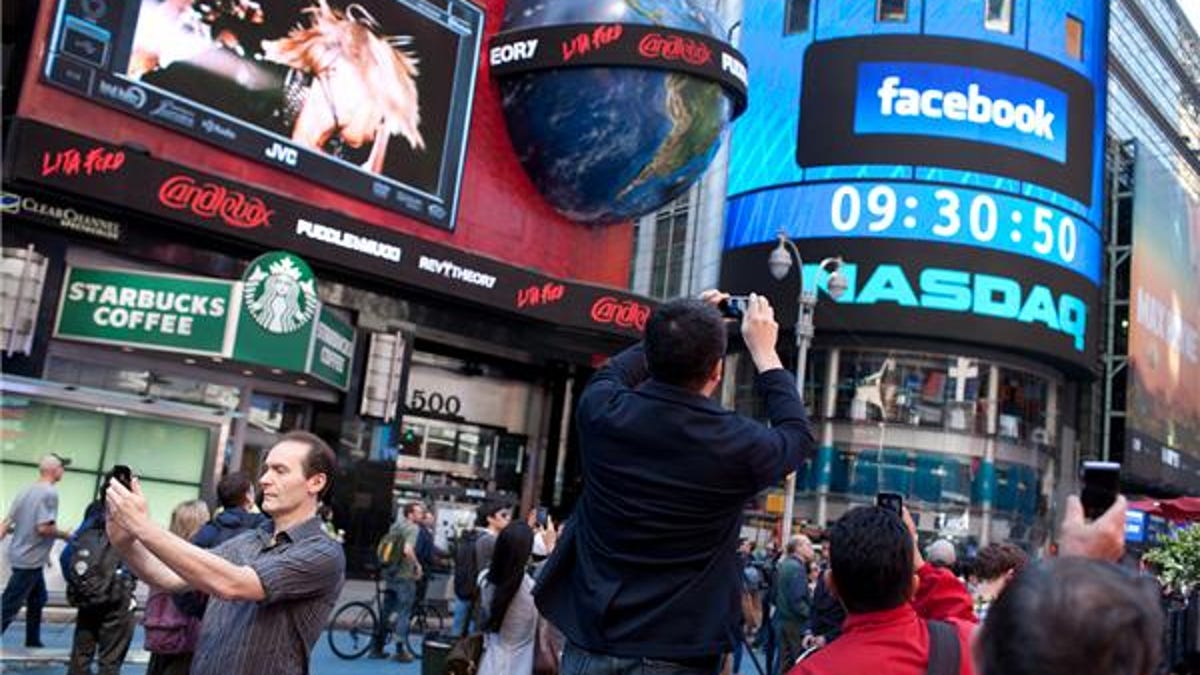Facebook's swooning stock: Pity Sean Parker, other gajillionaires
A bunch of big Facebook insiders were counting on being able to dump more shares at the IPO price of $38. As if.

Facebook's uber-rich insiders aren't likely to win much sympathy. But the company's thud of an IPO is likely to shave hundreds of millions in profits for a select bunch who just a few days ago counted on a magnificent payday.
As a result of the swoon in Facebook's stock, early investor Sean Parker is likely to lose out on $380 million in cash he had expected; Facebook co-founder Dustin Moskowitz: $285 million.
Let's hope they haven't spent it already.
At issue is what's called the "over allotment" of shares -- known in Wall Street lingo as the greenshoe. It's complex material for sure, and if you really want to dig in and understand how the bankers can benefit from this, check out Reuters' Felix Salmon's take here, or hedge fund manager David Maris' explanation on Forbes.com.
But here's the crux: The "over allotment" is additional shares that the company and insiders agree to sell to the underwriter at the IPO price a few days, or even weeks, after the IPO. Built into this is a bet on a stock debut that goes like this: Shares go public, pop a bit, and then continue to trade above the offering price -- even if just slightly.
Then the underwriters, in this case led by Morgan Stanley, "exercise" the greenshoe allotment. That means they buy up a bunch of stock from insiders at a price below what shares are trading at on the public market.
By having the greenshoe option, the bankers can lock in a good deal -- and then use those shares to fill orders with their big clients as they make good on their various commitments.
The insiders selling, meantime, take this route under an agreement with the company. It doesn't look good, after all, if insiders are dumping too many shares on IPO day. And this way, they still stand to gain by selling more stock at the IPO price.
Unless it's Facebook, and the IPO is a mess.
When Facebook boosted its offering price -- just two days before the IPO -- it also announced that a number of insiders would sell more shares. All told, Facebook's over allotment would potentially raise $2.4 billion by selling an addition 63 million shares -- almost all of that from early investors and co-founders.
"In this case, Facebook probably didn't want to sell more shares itself, so the additional shares came from the insiders," said Kathleen Shelton Smith, principal of IPO research firm Renaissance Capital.
That's all fine but it assumes continued demand, and so far all indications are that there is already way too much stock and not enough demand. With the bankers under attack and the stock hovering around $31 a share -- roughly 18 percent below the offering price -- it's unlikely the underwriters can exercise the over allotment, unless the stock takes a surprising turn and starts to rally.
That means all those insiders -- albeit, already super rich thanks to Zuck's empire -- will end up holding a lot more shares than they had planned. That might end up an enviable position in even a few months, but it's not quite the added lottery-like payday most of these folks had counted on.
Based on Facebook's S-1, here's how much some insiders are about to miss out on:
- Jim Breyer, who as a partner with Accel Partners led the first VC investment in Facebook with $12.7 million: $16.2 million.
- Acel Partners: $263.3 million.
- Peter Thiel, the company's first angel investor: $207.5 million.
- Mark Pincus, the Zynga founder and an early Facebook backer: $5.7 million.
- Reid Hoffman, the LinkedIn founder and also an early Facebook backer: $5.4 million
- Elevation Partners, which counts Bono as a partner: $26.3 million.
- DST Global, the firm run by Russian investor Yuri Milner: $260.3 million.
- Valiant Capital, a San Francisco-based hedge fund: $436.8 million
For a complete list, check out this one by research firm PrivCo.

